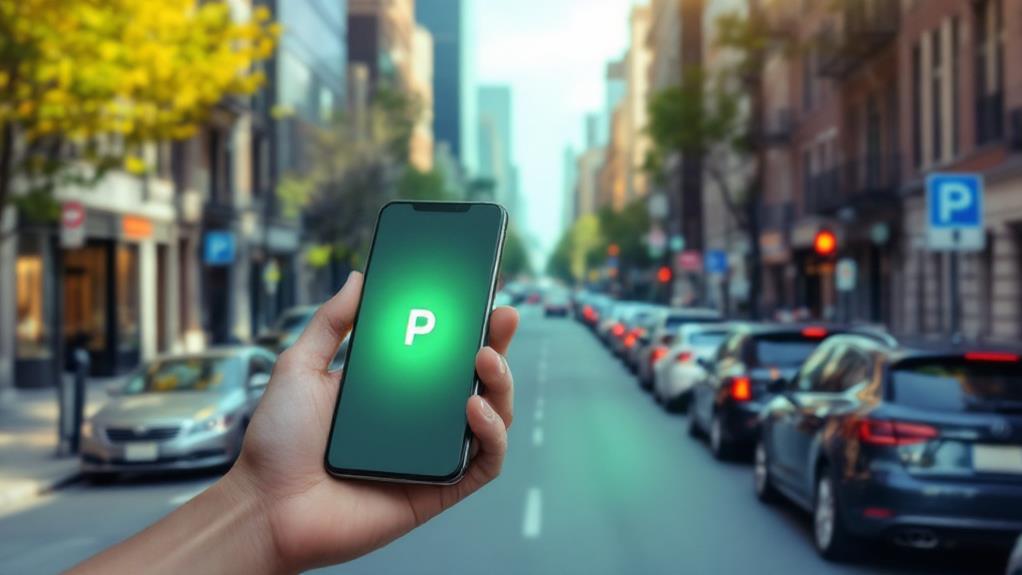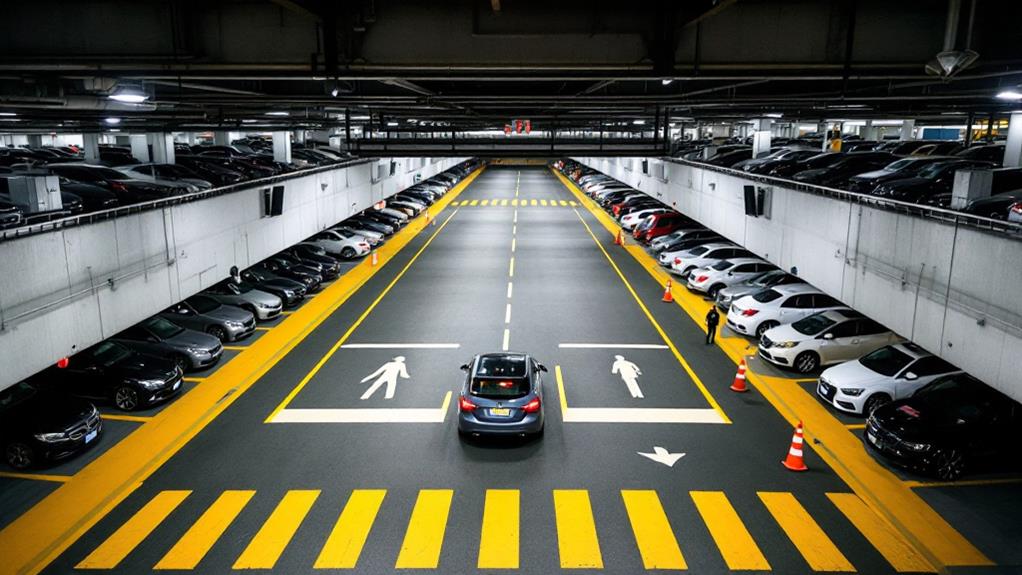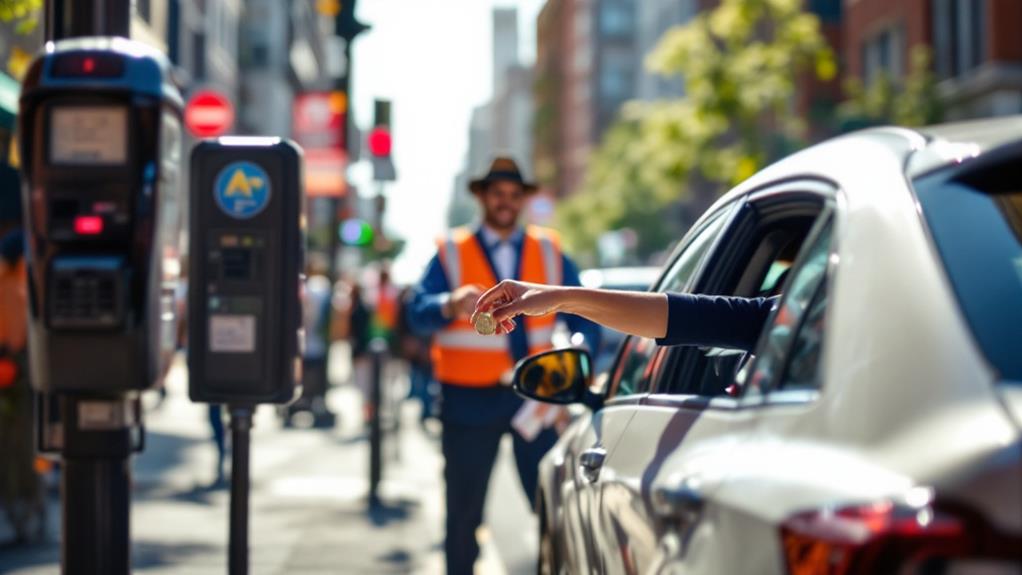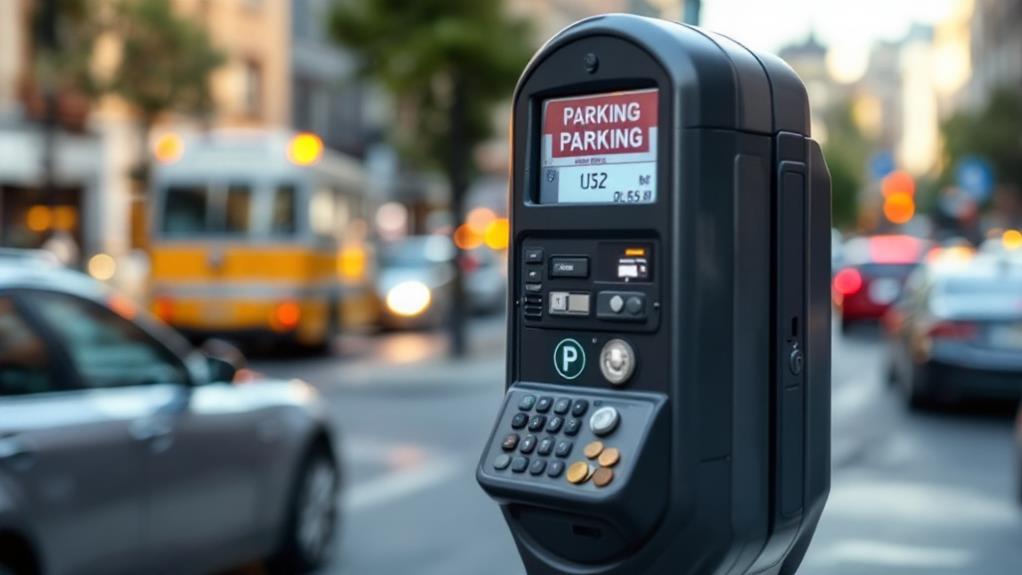The Pros and Cons of Monthly Parking Passes in Big Cities
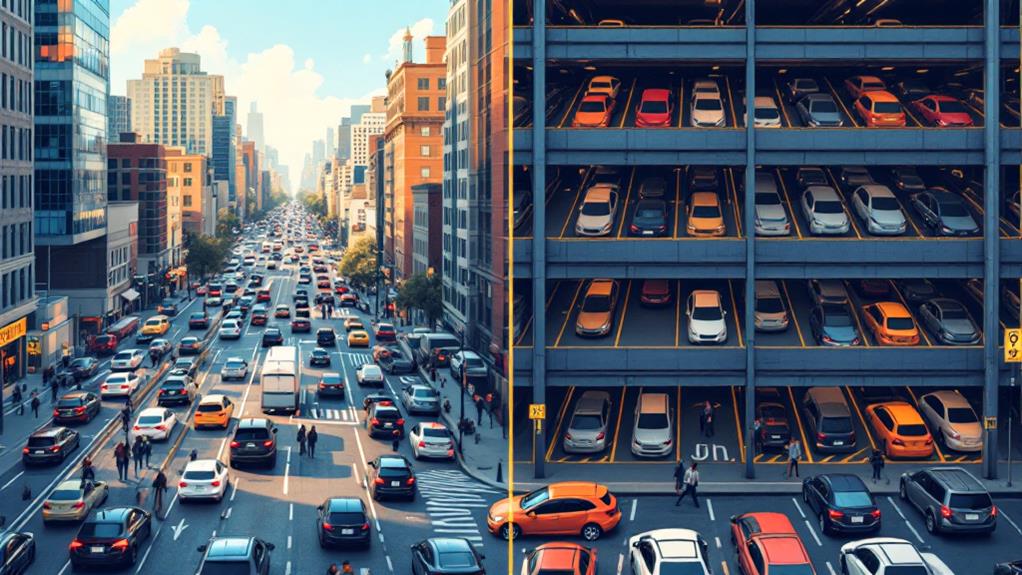
Monthly parking passes in big cities offer convenience and predictability for your commute, eliminating the stress of finding daily spots. You'll benefit from consistent budgeting and precise schedule planning. However, these passes can be costly, ranging from $200 to $400 monthly. They also encourage solo driving, contributing to increased traffic congestion and higher emissions. While passes provide financial stability, they remove the daily incentive to ponder alternative transportation options. Cities profit from parking revenue, but this can lead to increased overall parking demand. By exploring the full impact of monthly passes, you'll obtain a deeper understanding of their broader effects on urban environments.
Convenience and Predictability
When it comes to traversing the daily grind in a thriving metropolis, convenience and predictability can be life-changing. Monthly parking passes offer you a reliable solution to the chaos of Street Parking and the uncertainty of finding a parking space each day. With a parking permit in hand, you're free from the daily stress of hunting for a spot or worrying about meter fees.
These passes provide a consistent option for your commute trips, allowing you to budget your expenses more effectively than paying per day. You'll find that having a dedicated spot can help you plan your schedule with greater precision, potentially reducing the time spent circling blocks for parking.
However, it's worth considering how this convenience might impact your transportation choices. While public transit or other alternatives may be available, the ease of a monthly pass could lead you to drive more frequently. This steadiness, while comforting, may inadvertently increase your reliance on solo commuting. Weigh the benefits of a guaranteed parking space against the potential for exploring more sustainable commute options that could save you money and reduce your environmental impact.
Financial Considerations
The convenience of monthly parking passes comes at a price, and it's crucial to weigh the financial impact on your budget. In major cities, monthly parking costs can range from $200 to $400, a significant expense for many commuters. However, some employers subsidize parking or offer pre-tax benefits, which can help offset these costs.
While monthly parking may seem more economical than paying for parking on a daily basis, it's important to examine the long-term implications. The fixed upfront cost removes the daily incentive to investigate alternative transportation options, potentially increasing overall parking demand and congestion. Cities often benefit from charging for parking, with average revenue per metered space reaching $1,000 to $2,500 annually.
To make an informed decision, compare the pricing of monthly passes to daily rates and factor in the flexibility of your commute. Some parking facilities offer both monthly and daily options, allowing you to adjust your parking habits based on your needs. By carefully evaluating available parking options and considering alternatives, you can optimize your commuting costs and contribute to more efficient use of urban parking spaces.
Environmental Impact
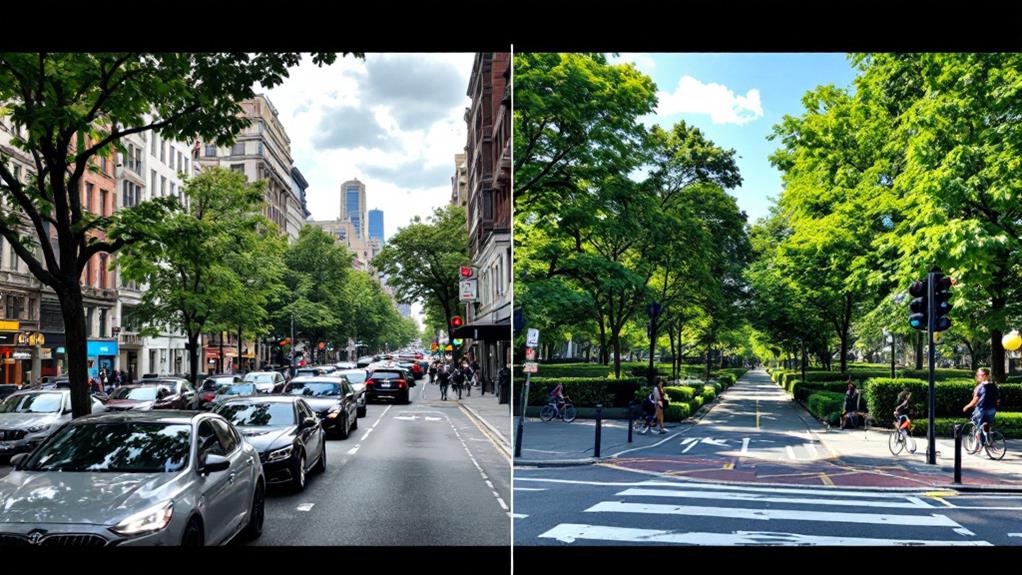
Evaluating the environmental impact of monthly parking passes reveals a substantial drawback. These passes encourage driving alone, contributing to increased traffic congestion and higher vehicle emissions. When you purchase parking on a monthly basis, you're less likely to evaluate alternative transportation options for each commute.
Studies have shown that pricing parking on a daily rather than monthly basis can significantly diminish solo driving. For example, when the Gates Foundation in Seattle switched from free parking to $12 daily parking fees, solo driving dropped from 90% to 34%. This shift, along with other measures, helped decrease Seattle's overall solo commute mode share from 35% to 30%, despite a substantial increase in workers.
Daily parking fees provide a stronger financial incentive for you to examine walking, biking, public transit, or carpooling for each individual trip. This approach, combined with Commute Trip Reduction programs that offer incentives for alternative transportation, can effectively lower emissions and reduce the environmental impact of commuting. By rethinking how parking lots and garages are priced, cities can encourage more sustainable transportation choices and improve air quality.
Traffic Congestion Effects
Beyond environmental concerns, monthly parking passes substantially impact traffic congestion in urban areas. You'll find that these passes incentivize solo driving, exacerbating traffic problems in cities like Los Angeles. When parking is priced on a daily basis, commuters are more likely to ponder alternative transportation modes each time they travel.
Research shows that daily parking fees can dramatically reduce solo commuting, from 90% to as low as 34%. The Gates Foundation in Seattle demonstrated this effect when they implemented a $12 daily parking fee, significantly decreasing solo driving. In contrast, monthly passes function like a "big fee on the first day" with subsequent days free, removing the daily incentive to avoid driving.
Free parking and minimum parking requirements contribute to the problem. By requiring developers to provide ample parking spots, cities inadvertently encourage car use. The New York Times has reported on how the price of parking influences driving behavior. When parking is underpriced or bundled into monthly passes, you're more likely to drive, leading to increased congestion and time spent circling the block for parking. Implementing daily fees can help alleviate these issues and promote more sustainable commuting habits.
Alternative Transportation Incentives
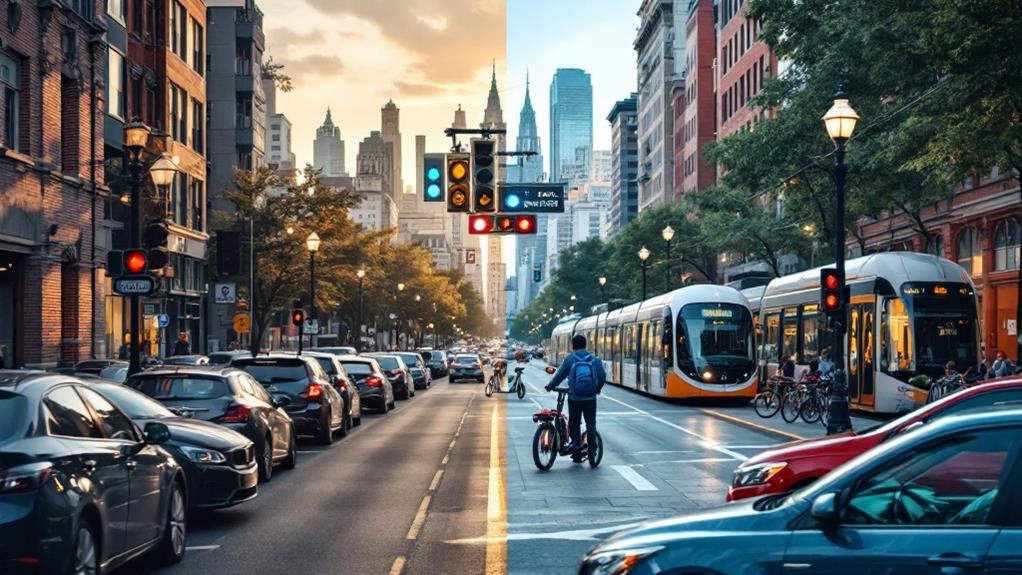
You'll find that alternative transportation incentives play an indispensable role in reducing solo driving and easing urban congestion. When employers offer a wide range of commute benefits, it becomes easier for you to evaluate options beyond driving to work. Free public transit passes or daily cash incentives for non-driving modes can make a little bit of difference in your commute choices.
Technology makes it possible to implement more effective parking strategies. Instead of offering monthly passes, employers are switching to daily parking fees. This approach provides a stronger incentive for you to reconsider your commute on a day-to-day basis. You might find yourself more willing to carpool, bike, or take transit when paying for parking each day.
Washington state leads the nation in Commute Trip Reduction programs, partnering with employers to decrease drive-alone commuting. These efforts are paying off, as Seattle saw a 5% drop in solo commute mode share despite adding 45,000 workers. By making it harder to park and offering alternatives, cities can effectively reduce traffic. The Gates Foundation, for example, saw solo driving plummet from 90% to 34% by charging $12 daily for parking.
